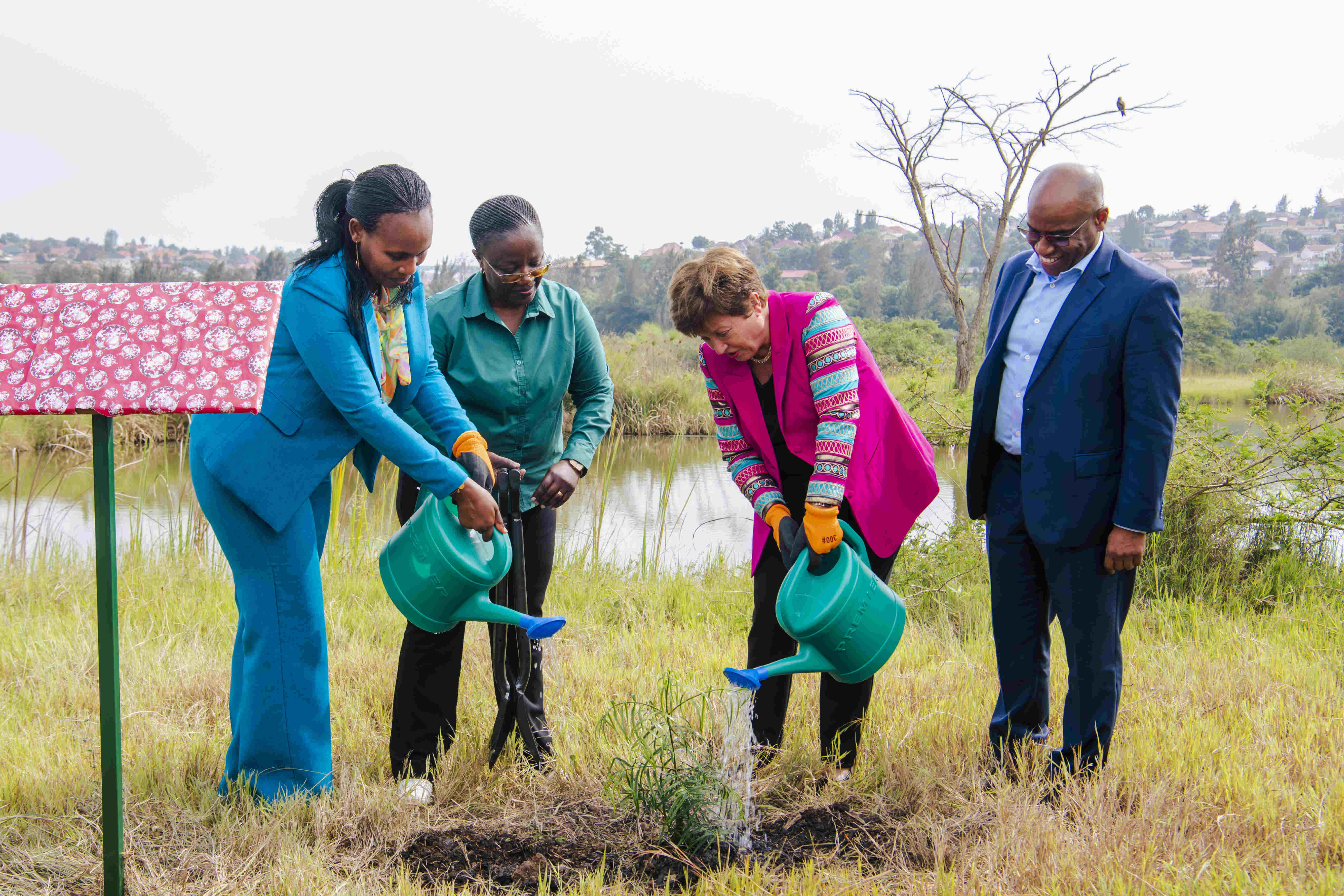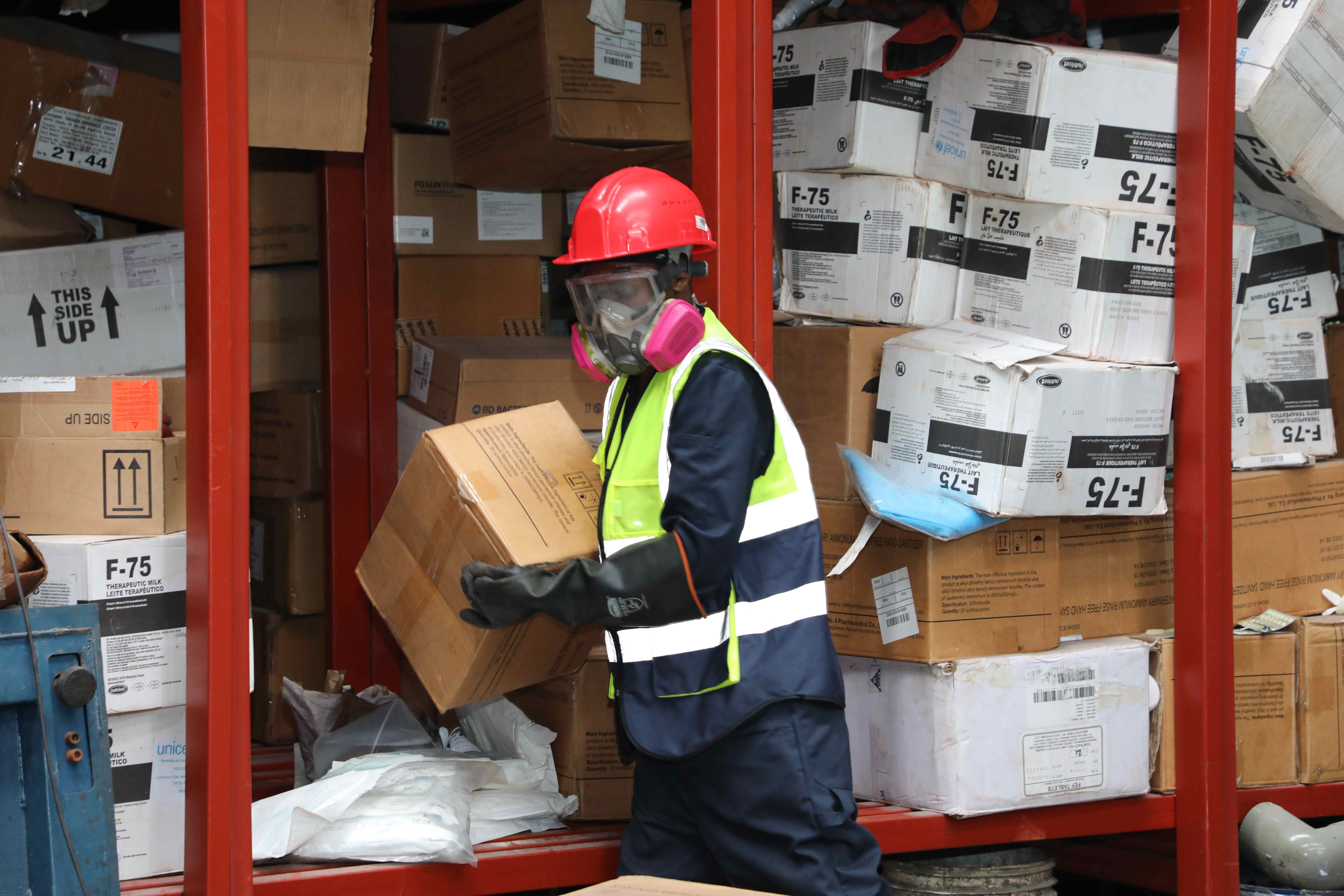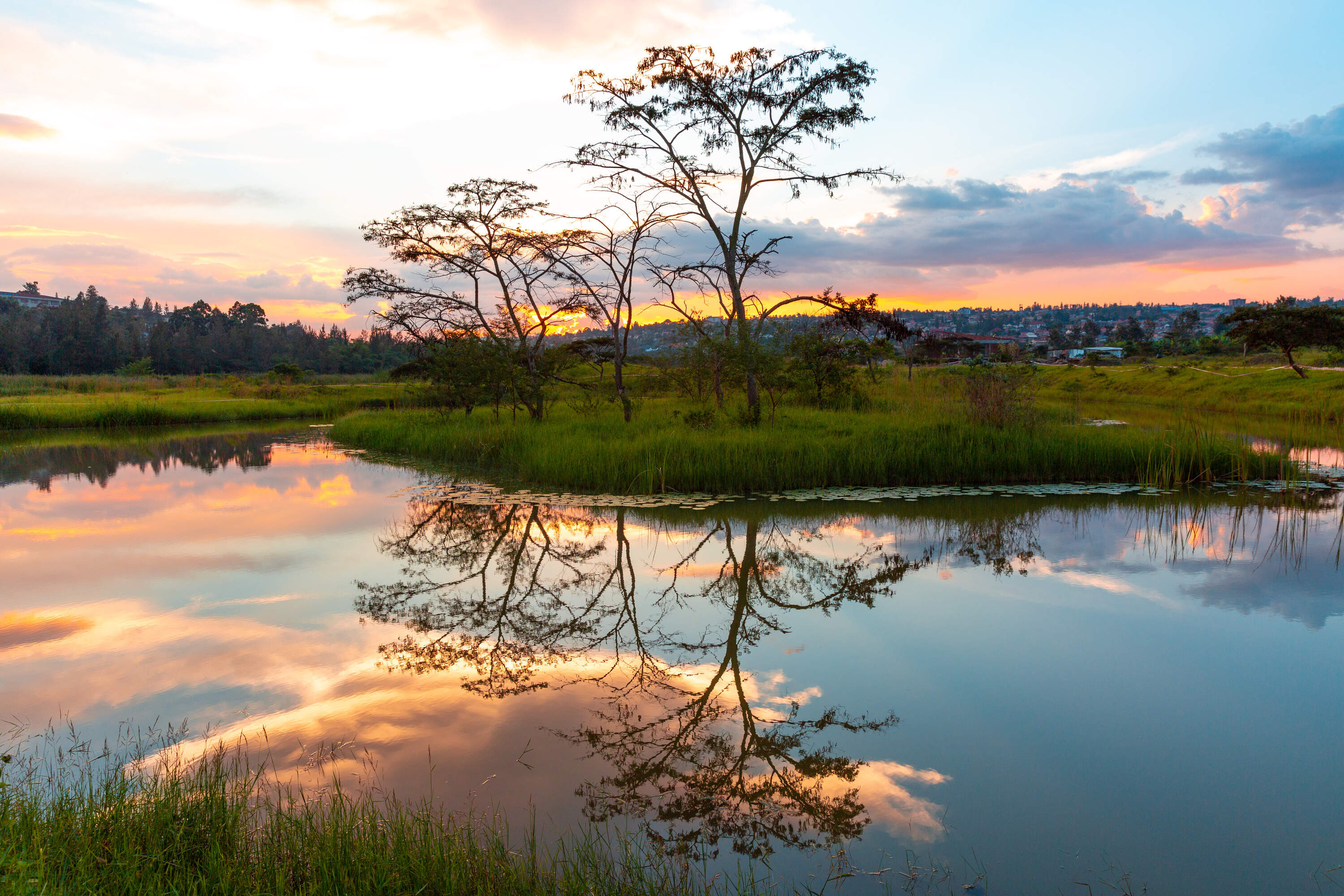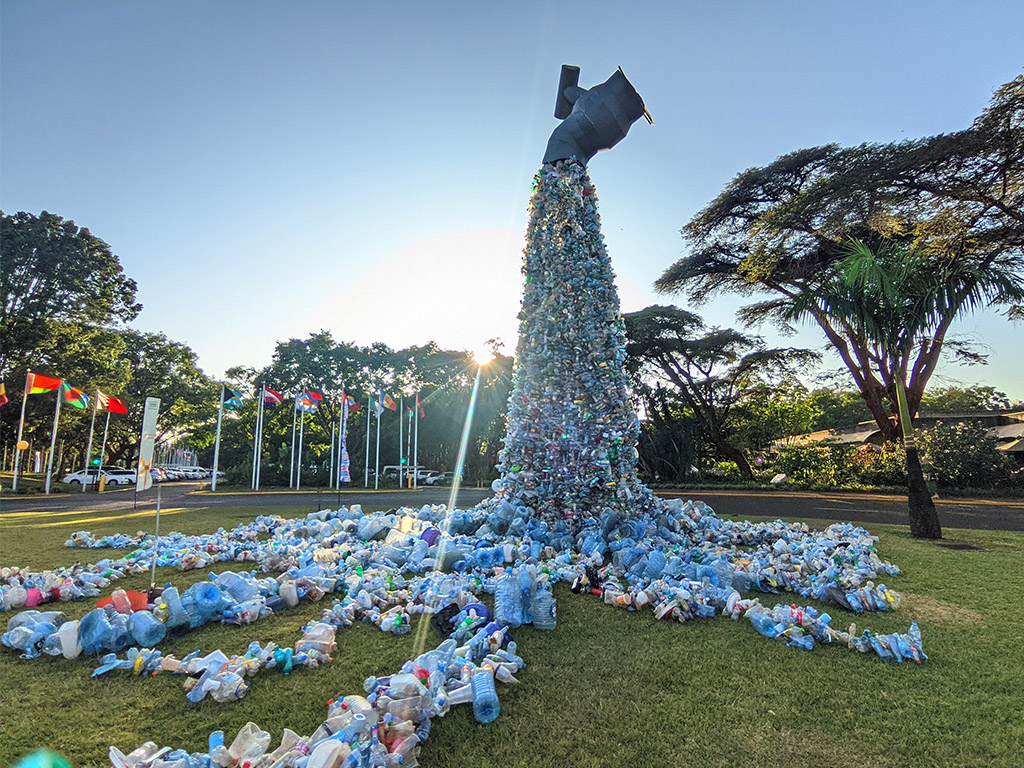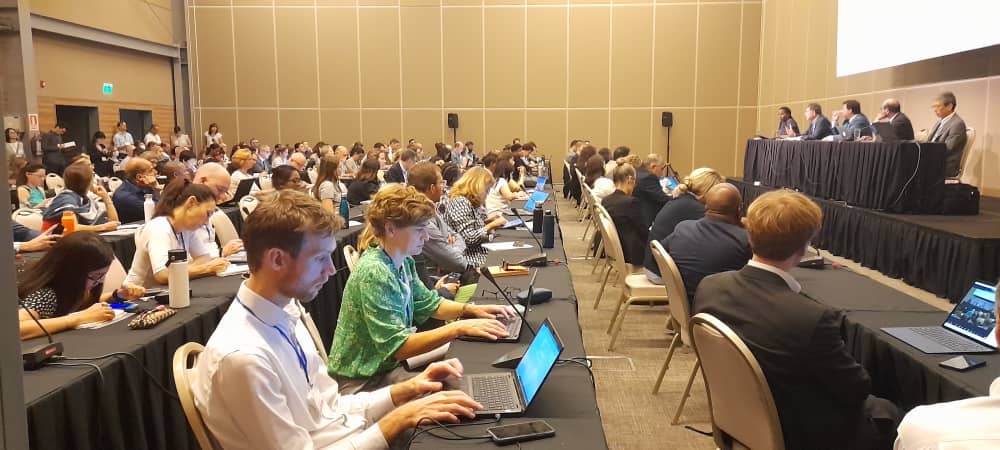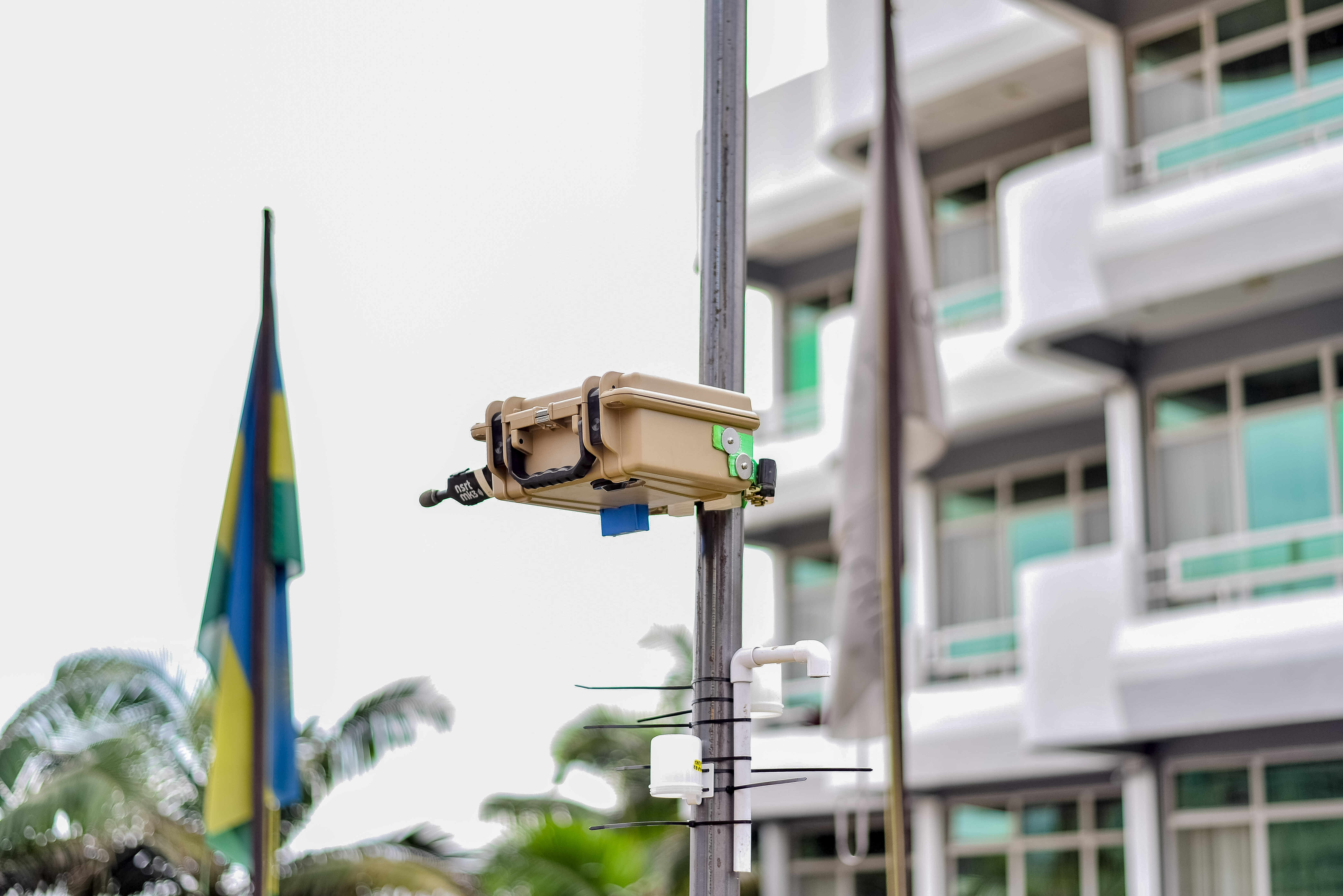National Ozone Officers meet in Kigali to discuss the implementation of Montreal Protocol and its Kigali Amendment
The Rwanda Environment Management Authority (REMA) in collaboration with the United Nations Environment Programme (UNEP)’s OzonAction has organized a five-day regional network meeting (from 8-12 May 2023) for National Ozone Officers of the English-Speaking African countries back-to-back with Thematic Workshop for customs Officers.
The meeting brought together National Ozone Officers from African countries as well as representatives of partner-organisations to exchange experiences, develop skills, and share knowledge to fulfill their obligations under the Montreal Protocol on Substances that Deplete the Ozone Layer.
The meeting is also part of the Regional Network service provided by OzonAction’s Compliance Assistance Programme (CAP) to (developing) countries as part of its role as an Implementing Agency of the Multilateral Fund for the Implementation of the Montreal Protocol.
National Ozone Officers from Angola, Botswana, Egypt, Eritrea, Ethiopia, Eswatini, Gambia, Ghana, Kenya, Lesotho, Liberia, Malawi, Mauritius, Mozambique, Namibia, Nigeria, Seychelles, Sierra Leone, Somalia, South Africa, South Sudan, Tanzania, Uganda, Zambia and Zimbabwe are attending the meeting, together with representatives from partner-organisations including the United Nations Industrial Development Organisation (UNIDO), the United Nations Development Programme (UNDP), UNEP, Ozone Secretariat and the German Agency for International Cooperation (GIZ).
“As you all know; the ozone layer is a vital shield that protects us from harmful ultraviolet radiation from the sun. The depletion of the ozone layer due to the release of ozone-depleting substances (ODS) is a global problem that requires everyone’s action to address it” said Juliet Kabera, Director General of REMA.
“The government of Rwanda maintains that a healthy ozone layer and climate are key to meeting all of the sustainable development goals, since the Montreal Protocol and its Kigali Amendment protect people and Mother Earth” she added.
Though the journey is still long, Rwanda has realized important achievements regarding the implementation of the Montreal Protocol.
They include its contribution to the development the Kigali Amendment, the ratification of the Kigali Amendment, reduction in consumption of the ODS by 57%, the promotion of the adoption of low Global Warming Potential alternatives to HFCs by establishing the “National Cooling Strategies”, the establishment of the online application system for licensing the import and export of controlled refrigerants and appliance containing HFCs, and those which are energy efficient, and the establishment of Africa Centre of Excellence for Sustainable Cooling and Cold Chain (ACES) among others.
Though some countries have put in place measures to phase out ODS, Patrick Salifu, the regional coordinator for the Montreal Protocol in Anglophone African Countries, said there are still some challenges which undermine efforts invested in the ozone layer recovery, including the illegal trade of ODS in certain African countries.
“You find a country is doing all it can do to phase out but beside you find other people illegally trading ODS. Mainly it’s the issue of illegal trade, in most of the African countries, that is undermining the efforts that we are doing in ozone layer recovery.” He said.
Hope for Ozone layer recovery
Despite these challenges, there is hope for the restoration of the ozone layer. Recent studies have shown that the ozone layer is on track to heal completely by the middle of this century.
This is due to various initiatives and policies, including the Kigali Amendment to the Montreal Protocol, which was adopted in 2016. The amendment was designed to eliminate the production and consumption of hydrofluorocarbons (HFCs).
Among other facts, it should be noted that various African countries, such as Rwanda and Kenya, have made significant progress in implementing the Montreal Protocol. They have accomplished this by prohibiting the importation, exportation, and use of products containing ODS, and have implemented strict enforcement measures to ensure compliance.
“You can hear figures like 90% of the gases that were destroying Ozone layer were successfully phased out. But restoration will take time that’s why it is predicted that by 2060, the ozone layer will get restored to its original shape.”
A thematic workshop will also be conducted to facilitate discussion between Ozone Officers and Customs officers from countries attending the meeting.
The workshop aims to identify current practices and challenges and to brainstorm and agree on an approach to strengthen the enforcement of licensing systems. Customs managers will be involved as they are the ones who deal with the importation and exportation of goods in their respective countries.
Topics
More posts
Rwandans Urged to halt wetlands degradation and contribute to wetlands restoration
Kigali, February 02,2023- Rwanda joins the rest of the world to commemorate World Wetlands Day (WWD) usually celebrated every year with the ultimate…
IMF Managing Director commends Rwanda’s commitment to fighting climate change
The Managing Director of the International Monetary Fund (IMF), Kristalina Georgieva commends Rwanda’s commitment to fighting climate change and being…
Rwanda Environment Management Authority and AKADEMIYA2063 Launched Partnership to Support Climate Mitigation and Adaptation
Kigali, January 11, 2022 – In view of implementing the African Union Commission (AUC) resolution to support African Union (AU) member states to comply…
The new Global Biodiversity Framework with an ambitious plan to protect and restore nature
Montreal, Canada, 22 December 2022 - The “Kunming-Montreal Global Biodiversity Framework” (GBF) adopted at the 15th meeting of the Conference of…
Rwanda launches a five-year initiative to improve hazardous waste management
The Rwanda Environment Management Authority (REMA) and the United Nations Development Programme (UNDP) have today launched a five-year project to…
Rwanda calls on the world to put nature first and agree on an ambitious Global Biodiversity Framework
Rwanda is calling on nations of the world to join hands and agree on an ambitious Global Biodiversity Framework at this UN Biodiversity Conference…
Rwanda and Norway to host a "Roadmap to end plastic pollution by 2024" event at WCEF2022
Rwanda and Norway through the Rwanda Environment Management Authority (REMA) are organising a "Road map to end plastic pollution by 2040" side event…
Negotiations on global treaty to end plastic pollution begin in Uruguay
Rwanda will join nations from around the world in Uruguay to begin drafting a global treaty to end plastic pollution with the first session of the…
AIMS and REMA launch Kigali City Framework for Noise and Air Quality Monitoring Campaign
The African Institute for Mathematical Sciences (AIMS), in partnership with Rwanda Environment Management Authority (REMA), have today launched the…
